Bulb Nutrition and How It Works
Posted by Brent & Becky's Admin on

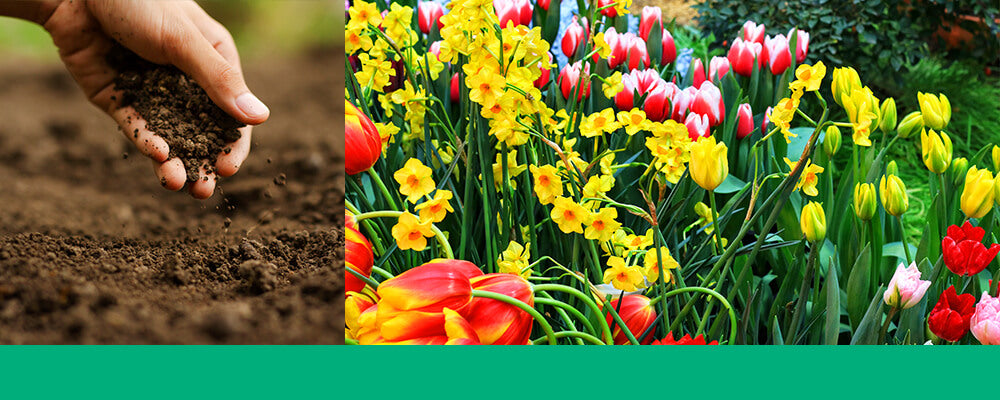
Just like us, our plants need to eat so they can grow healthy and strong. Plants pick up nutrients from the soil, and sometimes we have to add food to this soil so that the plants have enough of the right nutrients. Though you can't just put out a dish for the plants of whatever was on your family's dinner menu tonight, you can add certain things to the soil to make sure your bulb garden gets all the nutrients it needs to be productive.
Popular Bulb “Foods”
When it comes to bulb fertilizers and foods, our motto is to feed the soil. Contrary to what many products on the market will tell you, bulbs don’t really need “food,” they make food by producing starches and sugars. What they do need is adequate nutrition, which comes from feeding the microbes in the soil. However, that doesn’t mean there aren’t products out there that claim to “feed” your bulbs!
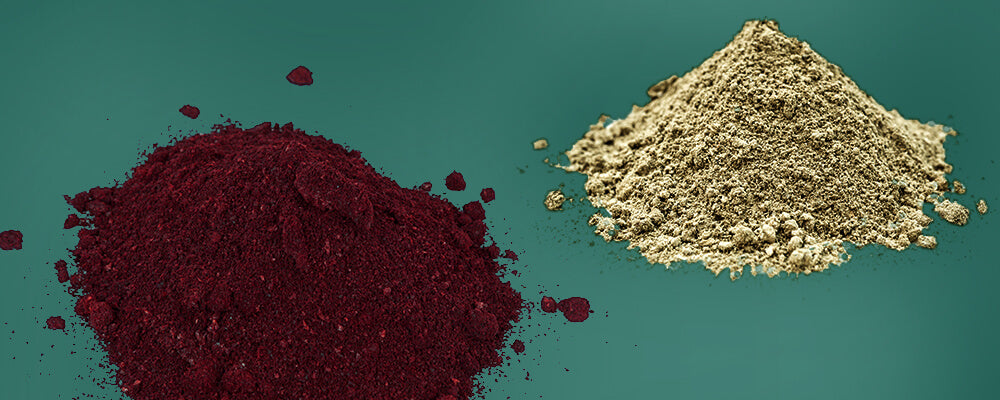
Bone Meal & Blood Meal
This type of organic bulb food is a powder made from dried and ground animal bones or blood. Its main purpose of bone meal is to add phosphorus and calcium to the soil, while blood meal is rich in nitrogen. Overall, these nutrients are beneficial for plant growth, but for a few reasons, these products aren’t the ideal way to go about it.
While bone meal can be a beneficial ingredient in bulb fertilizers, both bone meal and blood meal are very good at attracting carnivores. Some folks have tried to counteract this effect by adding these products below the bulb, but this is not ideal either. Not only will carnivores still sniff it out, but direct contact with these products can also cause the bulb to rot.
Furthermore, blood meal is very high in nitrogen, which does promote leaf growth, but at the expense of flowering. There are better options for feeding your garden soil, as I’ll explain below.
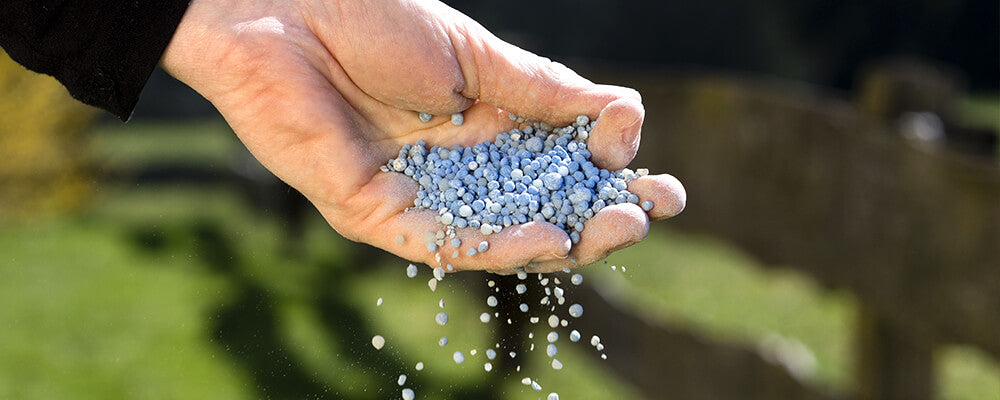
Granulated Bulb Food
Granular food, which can be organic or synthetic, is made of small particles that don't dissolve right away in water. Instead, they remain in the soil longer than liquid fertilizers do, so that the soil, and therefore plants, get a steady source of nutrients. Liquid foods, which provide a caffeine-like “quick fix” of nutrients, are not suitable for bulbs, which need steady nutrition months ahead of their actual bloom dates. Some products will tell you to fertilize your bulbs in the spring, and that’s a telltale sign it’s no good—by then, you’ve missed the boat! Instead, you’re better off feeding your soil in the fall for fall-planted bulbs, and in the spring for spring-planted bulbs.
We recommend a product called Espoma Bulb Tone, which is an organic formula you can apply to the surface of the soil. It contains a nice balance of nitrogen, phosphorus, and potash and also replaces the important trace minerals in the soil. It’s also easy to apply; just follow the directions on the bag.
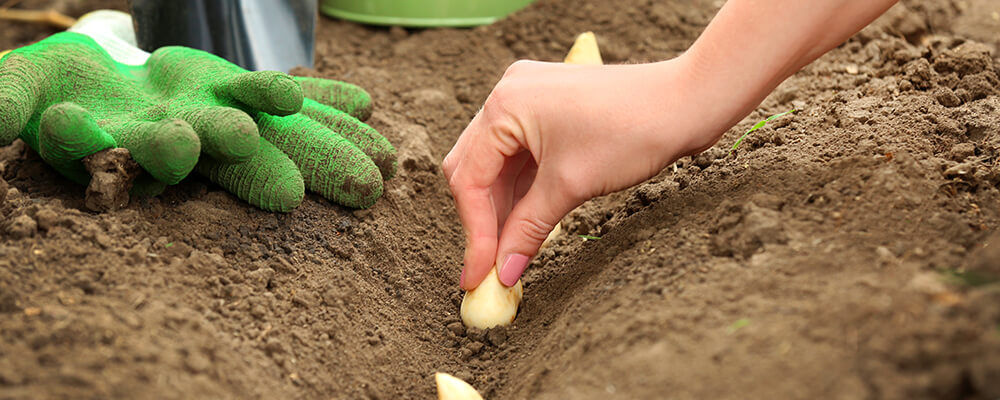
The Importance of Healthy Soil
The soil in our garden is a hub of life. In it live billions of bacteria, fungi, nematodes, and protozoa, all of which create the foundation for life that supports the growth of your garden plants.
Unhealthy soil helps no one. You may be able to get some growth out of it, by adding lots of chemicals like synthetic fertilizers. This helps for a short period of time and, in the end, leaves you with lifeless dirt instead of healthy soil.
Much like how we treat ourselves—the food we eat, the exercise we do, and so on—affects how we feel, how we treat the soil in our garden affects how plants grow. Here are some of our top tips for healthy soil.
- Avoid chemicals. When working with nature, less is often more. Using traditional pesticide and herbicide chemical treatments is usually just a short-term fix anyways. We should instead work to create an ecosystem in our yard that can regulate itself with beneficial predators. Plus, when using chemical fertilizers, you become somewhat dependent on them rather than working with your garden's microorganisms to maintain healthy soil conditions.
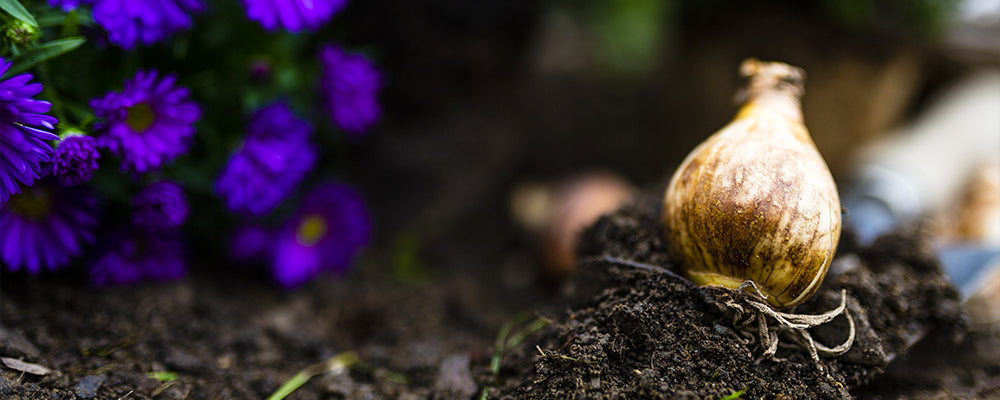
- Dig with care. Overworking the soil can harm its ecosystem. For example, rototilling can expose your soil to too much oxygen and can destroy helpful critters like earthworms—instead, only shovel, fork, and till when absolutely necessary.
- Watch foot traffic. When you step on your garden's soil, you compress it and crush air pockets that are vital to healthy soil to function. Try to avoid excessive foot traffic in your garden, especially after rain.
- Water strategically. Water is vital after planting and to keep the bulb cells nice and flexible before the winter, but avoid watering bulbs during their dormant period. (Dormancy happens in the summer for fall-planted bulbs and in winter for spring-planted bulbs.)
- Use the right products. Consider mulching with compost or well-composted manure to enrich your garden soil and adding amendments such as azomite to replenish minerals and improve bloom color. And as a note, our stock levels for soil products run out quickly each year, so be sure to buy what you need anytime you see it in stock!
Healthy soil means healthy plants. It's as simple as that. OK, maybe it's not that simple, but these tips should help!
Share this post
- Tags: blooming, bone meal, Brent and Becky's, brent and becky's blog, bulb, bulb food, bulb plants, bulbs, flowers, garden, gardening, gardening tips, grow, planting, planting bulbs, plants


